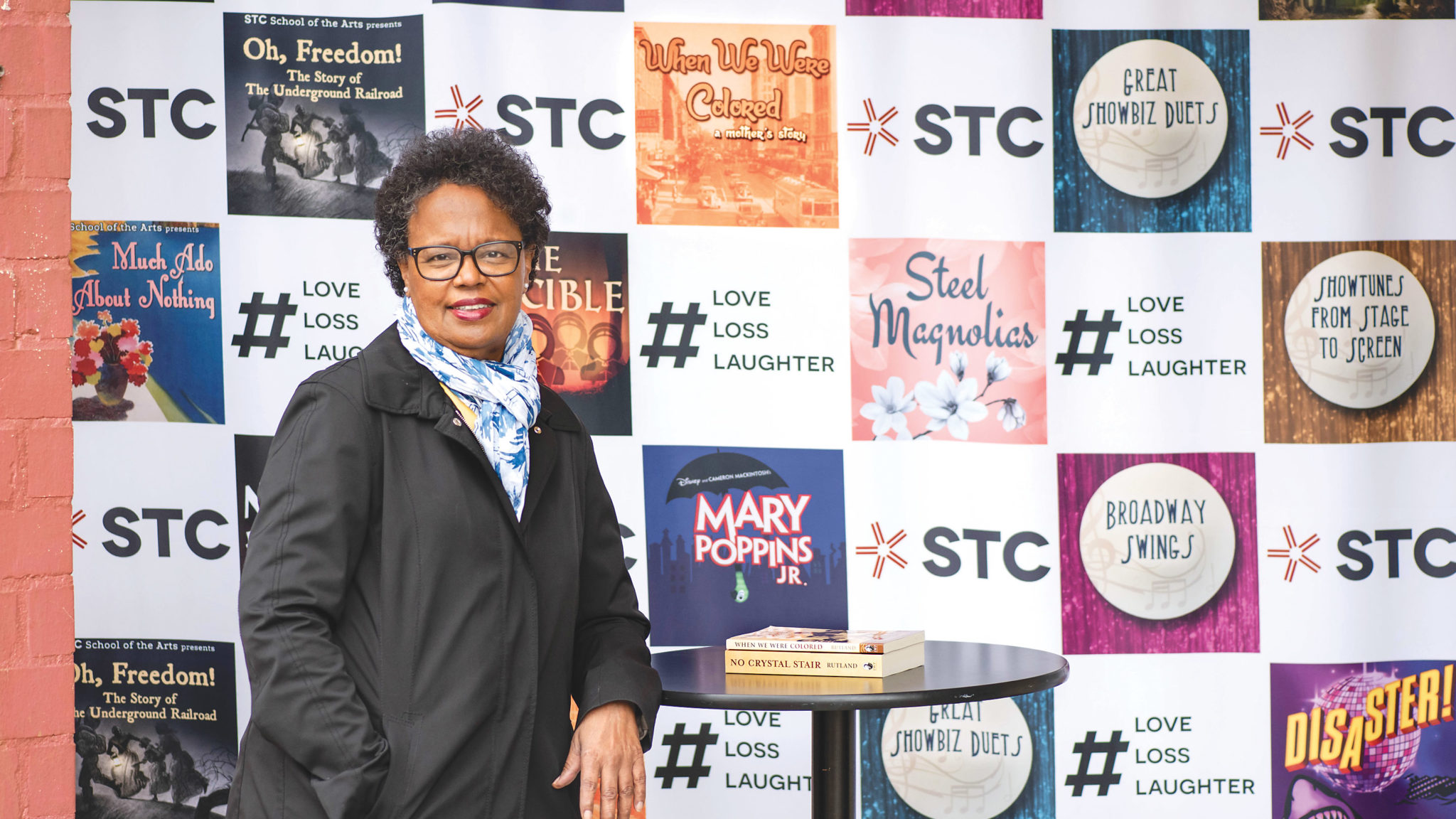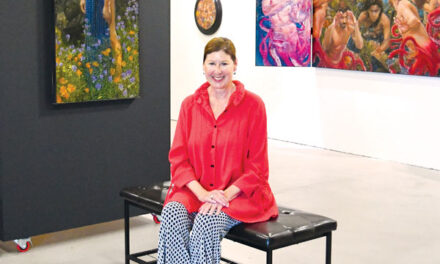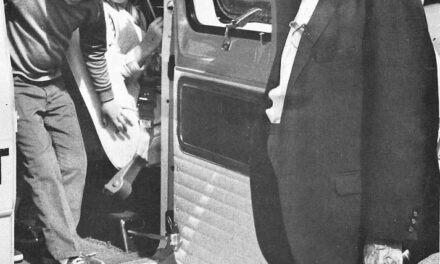A Mother’s Memories
Journalist-turned-playwright brings story of black middle-class to the stage
By Jessica Laskey
March 2019

Ginger Rutland lives in Curtis Park not far from where her family resided when they first came to Sacramento in 1952.
“Of course,” Rutland says, “because of racial covenants on the deeds and real estate practices in 1952, blacks couldn’t purchase homes in this part of the neighborhood—nothing south of Second Avenue. Times change!”
Changing with the times has been something of a personal theme for Ginger Rutland during her storied career. After graduating from Howard University in Washington, D.C., Ginger Rutland worked as a TV reporter for 17 years at KCRA and KRON-TV (the NBC affiliate in San Francisco) before becoming an associate editor at The Sacramento Bee—from which she retired in 2013—and a commentator for Capital Public Radio. But it’s the work she’s done with her own family lore that seems to bring her the most pride.
“When We Were Colored: A Mother’s Story,” a play Rutland adapted from her mother Eva’s memoir, premiers at Sacramento Theatre Company this month. The play is the capstone on more than a decade of work on Rutland’s part to bring her mother’s story to the masses.
Eva Rutland, as her daughter puts it, “was a middle-class black woman who was born and educated in the Jim Crow south in Atlanta who came to Sacramento after World War II with her husband and four children and landed on the outer edge of Curtis Park, entering the integrated world for first time.”
The elder Rutland was an accomplished writer in her own right, selling more than 20 romance stories to Harlequin during her lifetime, as well as countless pieces to Ladies Home Journal and Redbook in the 1950s—many of which she dictated to one of the first talking computers after going blind in her early 50s.
Rutland’s memoir, “The Trouble with Being a Mama,” published in 1964 and republished by her daughter in 2007 under the new title “When We Were Colored,” provides the backbone for the play.
“I attend plays at Ashland a lot,” Rutland says. “They do a lot of ‘black stuff,’ but it’s all relentlessly sad—slavery, rape, bad things happening. I thought, ‘I’ve been black all my life, it ain’t all that bad.’ I wanted to lighten things up, so I approached some people I knew at Ashland about turning my mother’s book into a play. They said go ahead and write it, so I did.”
After adapting her mother’s memoir—the story of a middle-class black family that serves as an antidote to the “popular narrative in this country about black people being poor, angry, suffering sharecroppers—when a huge swath of black Americans are just like everybody else,” she explains—Rutland shopped it around to various theaters to no avail. Undeterred, she decided to produce it herself in 2015 at her church, Pioneer Congregational, which led to a sold-out, eight-performance run produced and performed entirely by volunteers.
But when no larger venues or companies came calling even then, Rutland decided to bring in the big guns. She contacted Stephen Eich—former managing director of Chicago’s prestigious Steppenwolf Theatre Company and LA’s Geffen Playhouse, as well as executive director of Pasadena Playhouse—to see if he would help her workshop the piece. He agreed, and the resulting play was picked up by STC for a world premiere run from March 20 through April 28 with Eich as director.
“Rewriting and upping my game has been worth it,” says Rutland, adding that it was the addition of intergenerational tension between the characters based on herself and her parents that clinched the rewrites.
“It’s incredibly gratifying to have all of these black people come up to me and say, ‘Thank you for showing us. Thank you for telling our story.’ My mother died in 2012 and my father has been gone since 2005, but I think they would be thrilled.”
Jessica Laskey can be reached at jessrlaskey@gmail.com.

















